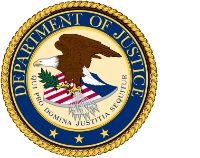Illinois Physician Pleads Guilty to Violating the Anti-Kickback Statute By Soliciting Payments From Drug Manufacturers
Pharmaceutical and device companies often bear the brunt of the kickback enforcement in the United States. The Anti-Kickback statute, however, is broadly drafted and establishes penalties for individuals and entities on both sides of the prohibited transaction—doctors included. The statute prohibits “offering, paying, soliciting or receiving remuneration to induce referrals of items or services covered by Medicare, Medicaid and other federally funded programs.” The Department of Justice recently announced that an Illinois physician, Dr. Michael J. Reinstein, pleaded guilty to receiving illegal kickbacks totaling nearly $600,000 from two pharmaceutical companies in exchange for prescribing the anti-psychotic drug clozapine to his patients.
Dr. Reinstein also agreed to pay the United States and the state of Illinois $3.79 million to settle a parallel civil lawsuit alleging that, by prescribing clozapine in exchange for kickbacks, Reinstein caused the submission of false claims to Medicare and Medicaid for the clozapine he prescribed. The DOJ announcement states that Reinstein prescribed clozapine to thousands of elderly and indigent patients in at least 30 Chicago-area nursing homes and other facilities
As set forth in the plea agreement, the payment scheme involving Reinstein began in August 2003, when Reinstein agreed to switch his patients to generic clozapine if IVAX LLC agreed to pay Reinstein $50,000 under a one-year “consulting agreement” and to provide other benefits to Reinstein. In addition to direct payments to Reinstein, IVAX allegedly also provided all-expenses paid trips to Miami for Reinstein, his wife and his employees. “Reinstein quickly became the largest prescriber of generic clozapine in the country and prescribed the drug to many elderly patients,” notes DOJ.
The pharmaceutical manufacturers didn’t get off without penalty. In March 2014, Teva Pharmaceuticals and IVAX paid the United States and the state of Illinois $27.6 million to settle allegations that they violated the state and federal False Claims Acts by making payments to Reinstein in return for him prescribing clozapine to his patients.
Just a couple of weeks ago at the CBI Medical Device Compliance Congress, some members of the device industry were critical of the DOJ for what appeared to be their one-sided focus on companies rather than physicians. Many companies have asserted that doctors can be especially abusive of their prescribing power when negotiating with companies. DOJ seems to have responded, at least in this case.
“The Department of Justice is committed to ensuring that physicians who accept payments from pharmaceutical manufacturers to influence prescribing decisions are held accountable,” said Acting Assistant Attorney General Joyce R. Branda of the Justice Department’s Civil Division. “Schemes such as this one undermine the health care system and take advantage of elderly patients who are among the most vulnerable health care recipients.”
—
While this case is noteworthy in that a physician was criminally charged with kickback violations, it is debatable whether this will mark a trend for DOJ.
For one, the Department recognizes that the vast majority of speaker fee relationships provide legitimate educational value for physicians with vital benefits for patients. Dr. Reinstein is fairly notorious at this point–in November 2009, an article questioning the appropriateness of Reinstein’s use of clozapine appeared in the Chicago Tribune. The District of Illinois filed a federal fraud lawsuit in 2012. ProPublica has also run various pieces on his extreme prescribing patterns. We covered Reinstein’s story a number of years ago, as his case generated controversy in part due to the fact that Medicare continued to reimburse him despite numerous red flags.
An important takeaway is the government’s focus on the correlation between payments and drastic spikes in the paid consultant’s prescribing behavior, especially, it seems, where the doctor initiates these relationships. The 2012 lawsuit against Reinstein alleged that he changed his prescribing to fit whoever was paying him. When it was Novartis, he was prescribing brand name clozapine. As soon as those payments stopped, he initiated a contract with IVAX, the generic manufacturer, and “quickly became the largest prescriber of generic clozapine in the country.”
The particular medication in question also raised issues to the DOJ, which stated in 2012:
“Reinstein’s inordinate prescribing of clozapine stands in stark contrast to its extremely limited use by other physicians,” the lawsuit states. While generally only four percent of schizophrenia patients who were prescribed antipsychotics received clozapine, during the time Reinstein was alegedly accepting kickbacks from IVAX, more than 50 percent of his patients were prescribed IVAX’s clozapine. At one nursing home, Reinstein had 75 percent of the 400 residents on IVAX’s clozapine.
This case also illustrates how much longer it takes for individuals to reach settlements with the government, especially when criminal charges are involved. As we noted, Teva and Ivax settled with the government early last year for their involvement in this case.

